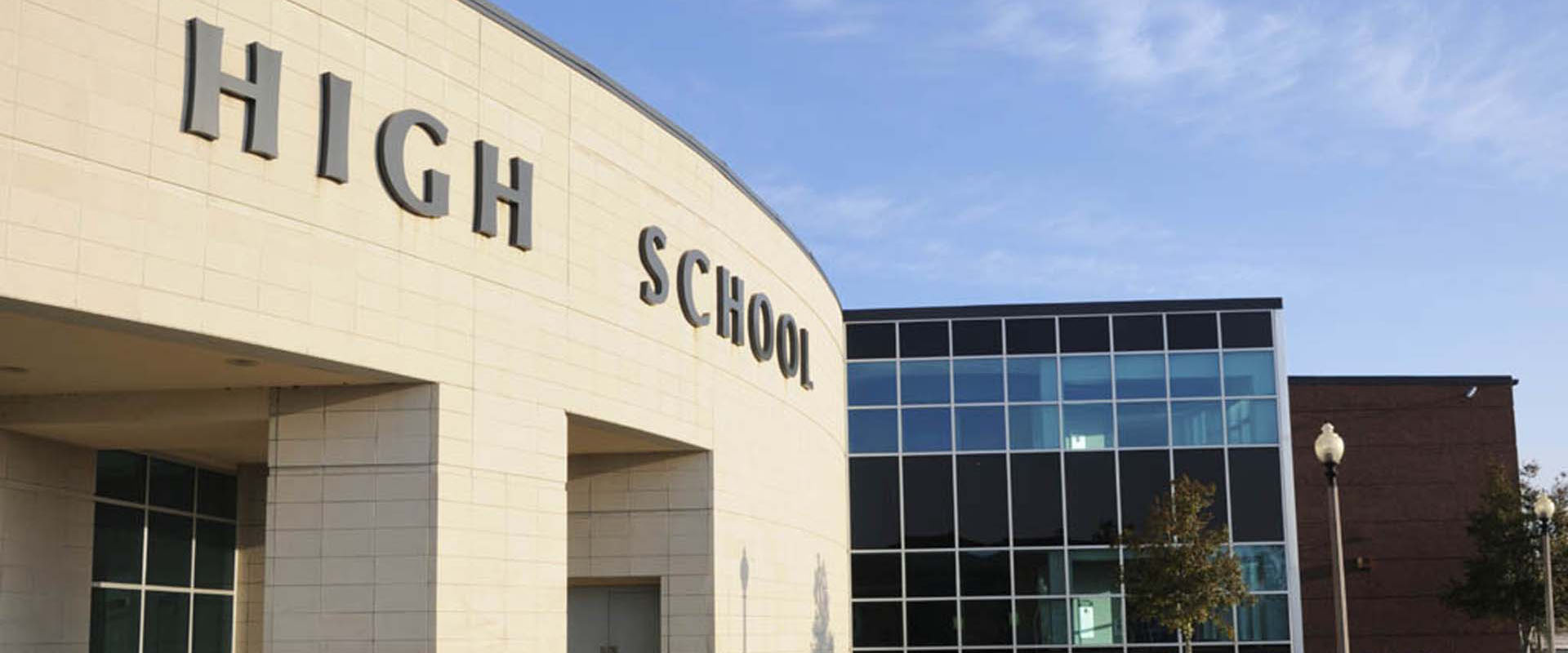Federal Court Upholds Texas School Board's Practice of Student Invocations at School Board Meetings

June 2017
Number 29
A federal appeals court recently upheld a Texas school district's practice of permitting students to deliver a religious invocation at the beginning of governing board meetings. ( American Humanist Association et al v. Birdville Independent School District et al (5th Cir. 2017, Nos. 15-11067, 16-11220) ___ F.3d ___ (Birdville). While noteworthy, the opinion is not binding on public agencies in California, where a separate ruling on religious invocations at governing board meetings issued by a California-based district court is now being reviewed by the Ninth Circuit Court of Appeals.
In Freedom from Religion Found., Inc. v. Chino Valley Unified School Dist.Bd. of Ed (C.D. Cal. Feb. 18, 2016, No. 5:14-cv-02336-JGB-DTB) (Chino Valley ), the court ruled that a California school district board violated the Establishment Clause of the U.S. Constitution when it adopted a policy allowing a local clergy member or board member to deliver an invocation before each board meeting. The court also held that board
members citing Bible passages during board meetings in the presence of student board members constituted unlawful school prayer. (See 2016 Client News Brief No. 20.)
In Birdville, two students opened each board meeting. One student led the Pledge of Allegiance and Texas pledge, while the other delivered "some sort of statement," which often included an invocation. From 1997 through February 2015, the student comments were called "invocations," but were dubbed "student expressions" after the District received a complaint from a former student and member of the American Humanist Association (AHA) that the invocation violated the Establishment Clause. The group later sued, claiming that the student invocation amounted to unconstitutional school prayer.
A federal district court ruled in favor of the District, holding that a legislative prayer exception developed by the United States Supreme Court in 1983 applied to the invocation. (See Marsh v. Chambers (1983) 463 U.S. 783.) The Fifth Circuit Court of Appeals agreed, holding that board members, and not the audience at board meetings, were the principal audience for the invocations and that students' presence at the meetings did not make this a school prayer case because the invocation was delivered during the ceremonial portion of the meeting and was not directed at them. The court also rejected plaintiff's argument that the District's invocation policy lacked a "unique history," noting that at least eight states have some history of opening prayers at school board meetings.
In Chambers, the Supreme Court upheld a chaplain's invocation because "[t]he opening of sessions of legislative and other deliberative public bodies with prayer is deeply embedded in the history and tradition of this country." More recently, the Supreme Court extended the legislative prayer exception to city council meetings, so long as the principal audience is the "lawmakers themselves" as opposed to members of the public in attendance and the prayer does not "denigrate nonbelievers or religious minorities." (See Town of Greece v. Galloway (2014) 134 S. Ct. 1811.)
The court also acknowledged two pre-Galloway cases where school district board meeting invocations were determined to be unconstitutional school prayer. In those cases, the courts held that invocations at school board meetings were not covered by the legislative prayer exception because school board meetings are inextricably linked with the public school system. However, in those cases, the school boards had at least one student member or their meetings were attended by student representatives in their formal role as student government representatives, neither of which was the case in Birdville.
It is not yet clear whether this decision will be appealed to the Supreme Court.
Once issued, the Ninth Circuit's opinion in Chino Valley will likely set the framework for the legality of invocations at California school board meetings. That ruling, which Lozano Smith is monitoring closely, is anticipated within the next year.
For more information on the Birdville ruling or invocations at school board meetings in general, please contact the authors of this Client News Brief or an attorney at one of our nine offices located statewide. You can also visit our website, follow us on Facebook or Twitter or download our Client News Brief App.
Number 29
A federal appeals court recently upheld a Texas school district's practice of permitting students to deliver a religious invocation at the beginning of governing board meetings. ( American Humanist Association et al v. Birdville Independent School District et al (5th Cir. 2017, Nos. 15-11067, 16-11220) ___ F.3d ___ (Birdville). While noteworthy, the opinion is not binding on public agencies in California, where a separate ruling on religious invocations at governing board meetings issued by a California-based district court is now being reviewed by the Ninth Circuit Court of Appeals.
In Freedom from Religion Found., Inc. v. Chino Valley Unified School Dist.Bd. of Ed (C.D. Cal. Feb. 18, 2016, No. 5:14-cv-02336-JGB-DTB) (Chino Valley ), the court ruled that a California school district board violated the Establishment Clause of the U.S. Constitution when it adopted a policy allowing a local clergy member or board member to deliver an invocation before each board meeting. The court also held that board
members citing Bible passages during board meetings in the presence of student board members constituted unlawful school prayer. (See 2016 Client News Brief No. 20.)
In Birdville, two students opened each board meeting. One student led the Pledge of Allegiance and Texas pledge, while the other delivered "some sort of statement," which often included an invocation. From 1997 through February 2015, the student comments were called "invocations," but were dubbed "student expressions" after the District received a complaint from a former student and member of the American Humanist Association (AHA) that the invocation violated the Establishment Clause. The group later sued, claiming that the student invocation amounted to unconstitutional school prayer.
A federal district court ruled in favor of the District, holding that a legislative prayer exception developed by the United States Supreme Court in 1983 applied to the invocation. (See Marsh v. Chambers (1983) 463 U.S. 783.) The Fifth Circuit Court of Appeals agreed, holding that board members, and not the audience at board meetings, were the principal audience for the invocations and that students' presence at the meetings did not make this a school prayer case because the invocation was delivered during the ceremonial portion of the meeting and was not directed at them. The court also rejected plaintiff's argument that the District's invocation policy lacked a "unique history," noting that at least eight states have some history of opening prayers at school board meetings.
In Chambers, the Supreme Court upheld a chaplain's invocation because "[t]he opening of sessions of legislative and other deliberative public bodies with prayer is deeply embedded in the history and tradition of this country." More recently, the Supreme Court extended the legislative prayer exception to city council meetings, so long as the principal audience is the "lawmakers themselves" as opposed to members of the public in attendance and the prayer does not "denigrate nonbelievers or religious minorities." (See Town of Greece v. Galloway (2014) 134 S. Ct. 1811.)
The court also acknowledged two pre-Galloway cases where school district board meeting invocations were determined to be unconstitutional school prayer. In those cases, the courts held that invocations at school board meetings were not covered by the legislative prayer exception because school board meetings are inextricably linked with the public school system. However, in those cases, the school boards had at least one student member or their meetings were attended by student representatives in their formal role as student government representatives, neither of which was the case in Birdville.
It is not yet clear whether this decision will be appealed to the Supreme Court.
Once issued, the Ninth Circuit's opinion in Chino Valley will likely set the framework for the legality of invocations at California school board meetings. That ruling, which Lozano Smith is monitoring closely, is anticipated within the next year.
For more information on the Birdville ruling or invocations at school board meetings in general, please contact the authors of this Client News Brief or an attorney at one of our nine offices located statewide. You can also visit our website, follow us on Facebook or Twitter or download our Client News Brief App.
As the information contained herein is necessarily general, its application to a particular set of facts and circumstances may vary. For this reason, this News Brief does not constitute legal advice. We recommend that you consult with your counsel prior to acting on the information contained herein.







